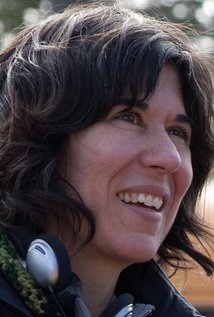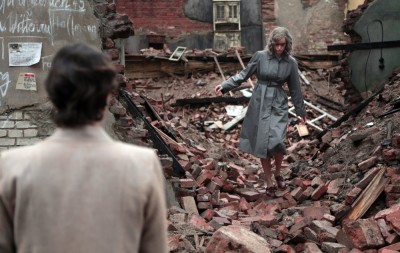Academy Award® nominated director Hubert Sauper’s WE COME AS FRIENDS, which we are proud to open at the Royal, Playhouse and Town Center on Friday, August 21, is a modern odyssey, a dizzying, science fiction-like journey into the heart of Africa. At the moment when the Sudan, the continent’s biggest country, is being divided into two nations, an old “civilizing” pathology re-emerges – that of colonialism, the clash of empires, and new episodes of bloody (and holy) wars over land and resources. The director of DARWIN’S NIGHTMARE takes us on this voyage in his tiny, self-made, tin and canvas flying machine. He leads us into improbable locations and into people’s thoughts and dreams, in both stunning and heartbreaking ways. Chinese oil workers, U.N. peacekeepers, Sudanese warlords, and American evangelists ironically weave common ground in this documentary, a complex, profound and bitterly humorous cinematic endeavor.
On July 31, the New York Times published Nicolas Rapold’s fascinating piece about the film in their Sunday Arts & Leisure section. Here’s how it starts:
There’s no shortage of jaw-dropping moments in Hubert Sauper’s new film, “We Come as Friends,” an illustrated essay on contemporary colonialism. But the most haunting may be a lightning-streaked nighttime visit to a South Sudanese tribal leader. Mr. Sauper brandishes a copy of a contract to confirm a terrible truth, and the leader’s moistening eyes and dejected bearing say everything. The old man has signed away hundreds of thousands of acres of land to a Texas firm.
“This was history unfolding in its best and most sarcastic form in front of my camera. And then the storm came,” Mr. Sauper said in a Skype interview from Paris. “As a filmmaker, it’s too good to be true. And it’s terrifying.”
It’s one example of how Mr. Sauper, the Austrian-born director of “WeCome as Friends,” portrays complicated contemporary realities through vivid and industrious reportage. Ten years ago his Academy Award-nominated documentary, “Darwin’s Nightmare,” sifted through the wreckage of globalization by way of the fishing export industry in Lake Victoria, the impact on local Tanzanians, and a fast-and-loose subculture of Russian cargo-plane pilots.
Read the rest of the piece here.
https://www.youtube.com/watch?v=E0MgQLk2OCQ

 An inside look at the offbeat sport of ping pong, the new documentary
An inside look at the offbeat sport of ping pong, the new documentary 




 “One text had a major influence on our preparations: Ein Liebesversuch (‘An Experiment in Love’) by Alexander Kluge. The story is set in Auschwitz. The Nazis are looking through peepholes into a sealed room. They’re observing a couple who, according to their records, used to be passionately in love. The Nazi doctors are trying to revive this love: They want the couple to sleep with each other. The goal is to establish whether the woman has been successfully sterilized. They try everything: champagne, red light, spraying them with ice-cold water – thinking that the need for warmth might drive them together again. But nothing happens – the two of them don’t look at each other. In a strange way, the Nazi doctors’ failure is a victory for love: a love lost that can’t be re-kindled by these criminals. I think that was the most significant text for us. Is it possible to leap back over the deep, nihilistic chasm torn by the National Socialists and the Germans, and to reconstruct things: emotions, love, compassion, empathy – life?
“One text had a major influence on our preparations: Ein Liebesversuch (‘An Experiment in Love’) by Alexander Kluge. The story is set in Auschwitz. The Nazis are looking through peepholes into a sealed room. They’re observing a couple who, according to their records, used to be passionately in love. The Nazi doctors are trying to revive this love: They want the couple to sleep with each other. The goal is to establish whether the woman has been successfully sterilized. They try everything: champagne, red light, spraying them with ice-cold water – thinking that the need for warmth might drive them together again. But nothing happens – the two of them don’t look at each other. In a strange way, the Nazi doctors’ failure is a victory for love: a love lost that can’t be re-kindled by these criminals. I think that was the most significant text for us. Is it possible to leap back over the deep, nihilistic chasm torn by the National Socialists and the Germans, and to reconstruct things: emotions, love, compassion, empathy – life? After eight years spent reading hundreds of Tucker’s personal scrapbooks, visiting fourteen archives, and interviewing dozens of family, friends, and fellow icons of stage and screen, producers Susan and Lloyd Ecker completed their comprehensive documentary about the Last of the Red Hot Mamas.
After eight years spent reading hundreds of Tucker’s personal scrapbooks, visiting fourteen archives, and interviewing dozens of family, friends, and fellow icons of stage and screen, producers Susan and Lloyd Ecker completed their comprehensive documentary about the Last of the Red Hot Mamas.
